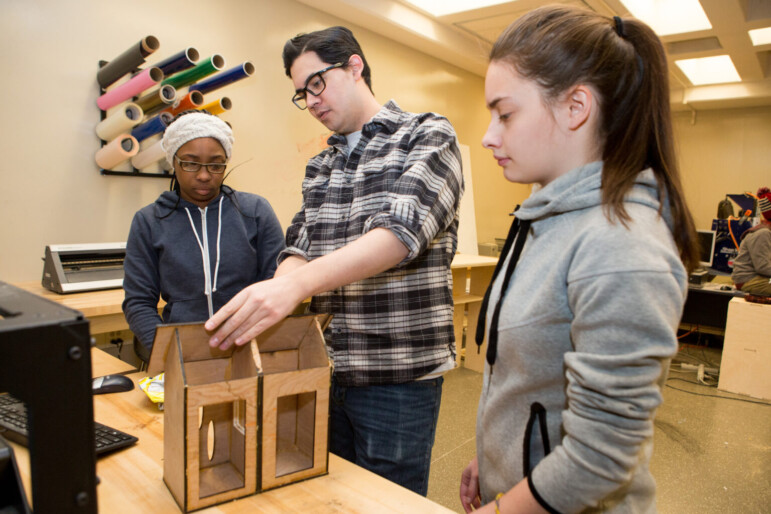Newly proposed legislation sponsored by the California Teachers Association would eliminate all performance assessments teachers are required to pass, including one for literacy that it supported three years ago. The result could leave in place an unpopular written test that the literacy performance assessment was designed to replace.
Senate Bill 1263, authored by state Sen. Josh Newman, D-Fullerton, would do away with the California Teaching Performance Assessment, known as the CalTPA, through which teachers demonstrate their competence via video clips of instruction and written reflections on their practice.
Eliminating the assessment will increase the number of effective teachers in classrooms, as the state continues to contend with a teacher shortage, said Newman, chairman of the Senate Education Committee.
“One key to improving the educator pipeline is removing barriers that may be dissuading otherwise talented and qualified prospective people from pursuing a career as an educator,” Newman said in a statement to EdSource.
The bill also would do away with a literacy performance assessment of teachers and oversight of literacy instruction in teacher preparation programs mandated by Senate Bill 488, authored by Sen. Susan Rubio, D-West Covina, in 2021.
The literacy performance assessment is scheduled to be piloted in the next few months. It is meant to replace the Reading Instruction Competence Assessment set to be scrapped in 2025.
New law could leave RICA in place
The proposed legislation appears to leave in place a requirement that candidates for a preliminary multiple-subject or education specialist credential pass a reading instruction competence assessment, said David DeGuire, a director at the California Commission on Teacher Credentialing.
“At this time, it is unclear what that assessment would look like, but it could be that the state continues to use the current version of the RICA,” he said.
Newman will present the legislation to the Senate Education Committee in the next few months. Discussions about whether the RICA remains in use are likely to take place during the legislative process.
Rubio recently became aware of the new legislation and had not yet discussed it with Newman.
“For three years, I worked arduously and collaboratively with a broad range of education leaders, including parent groups, teacher associations and other stakeholders to modernize a key component of our educational system that in my 17 years as a classroom teacher and school administrator I saw as counterproductive to our students’ learning,” Rubio said of Senate Bill 488.

Teachers union changes course
The California Teachers Association, which originally supported Senate Bill 488, now wants all performance assessments, including the literacy performance assessment, eliminated.
“We are all scratching our heads,” said Yolie Flores, of Families in Schools, a Los Angeles-based education advocacy organization. “We were really blindsided by this (legislation), given the momentum around strengthening our teacher prep programs.”
The results of a survey of almost 1,300 CTA members last year convinced the state teachers union to push for the elimination of the CalTPA, said Leslie Littman, vice president of the union. Teachers who took the survey said the test caused stress, took away time that could have been used to collaborate with mentors and for teaching, and did not prepare them to meet the needs of students, she said.
“I think what we were probably not cognizant of at that time, and it really has become very clear of late, is just how much of a burden these assessments have placed on these teacher candidates,” Littman said.
Teacher candidates would be better served if they were observed over longer periods of time, during student teaching, apprenticeships, residencies and mentorship programs, to determine if they were ready to teach, Littman said. This would also allow a mentor to counsel and support the candidate to ensure they have the required skills.
California joins science of reading movement
California has joined a national effort to change how reading is being taught in schools. States nationwide are rethinking balanced literacy, which has its roots in whole language instruction or teaching children to recognize words by sight, and replacing it with a method that teaches them to decode words by sounding them out, a process known as phonics.
Smarter Balanced test scores, released last fall, show that only 46.6% of the state’s students who were tested met academic standards in English.
Last week Assemblymember Blanca Rubio, D-Baldwin Park, introduced Assembly Bill 2222, which would mandate that schools use evidence-based reading instruction. California, a “local control” state, currently only encourages school districts to incorporate fundamental reading skills, including phonics, into instruction.
“It (Newman’s SB 1263) goes against not only the movement, but everything we know from best practices, evidence, research, science, of how we need to equip new teachers and existing teachers, frankly, to teach literacy,” Flores said. “And that we would wipe it away at this very moment where we’re finally getting some traction is just very concerning.”
Lori DePole, co-director of DeCoding Dyslexia California, said the proposed legislation would cut any progress the state has made “off at the knees.”
Among her concerns is the elimination of the requirement, also authorized by Senate Bill 488, that the California Commission on Teacher Credentialing certify that teacher preparation programs are teaching literacy aligned to state standards and a provision that requires the commission to report to the state Legislature annually on how stakeholders are meeting the requirements of the law.
“It would be going away,” DePole said. “Everyone agreed with SB 488, all the supporters agreed, this was the direction California needed to go to strengthen teacher prep with respect to literacy. And before it can even be fully implemented, we’re going to do a 180 with this legislation. It makes no sense.”
Flores said teachers want to be equipped to teach reading using evidence-based techniques, but many don’t know how.
“We know that reading is the gateway, and if kids can’t read, it’s practically game over, right?” said Flores. “And we are saying with this bill that it doesn’t matter, that we don’t really need to teach and show that teachers know how to teach reading.”

Teacher tests replaced by coursework, degrees
California has been moving away from standardized testing for teacher candidates for several years as the teacher shortage worsened. In July 2021, legislation gave teacher candidates the option to take approved coursework instead of the California Basic Education Skills Test, or CBEST, or the California Subject Examinations for Teachers, or CSET. In January’s tentative budget, Gov. Gavin Newsom proposed eliminating the CBEST and allowing the completion of a bachelor’s degree to satisfy the state’s basic skills requirement.
Littman disagrees with the idea that there will be no accountability for teachers if the legislation passes. “There’s always been, and will continue to be, an evaluation component for all of our teachers in this state,” she said. “It just depends on what your district does and how they implement that. There’s always been a system of accountability for folks.”
